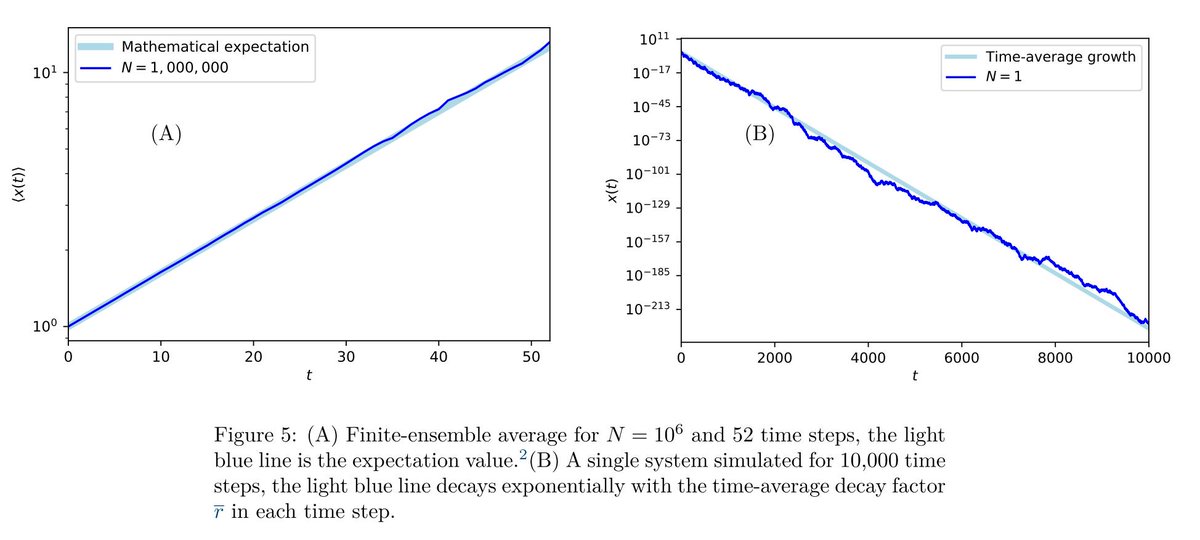journals.sagepub.com/doi/full/10.11…
Ready?
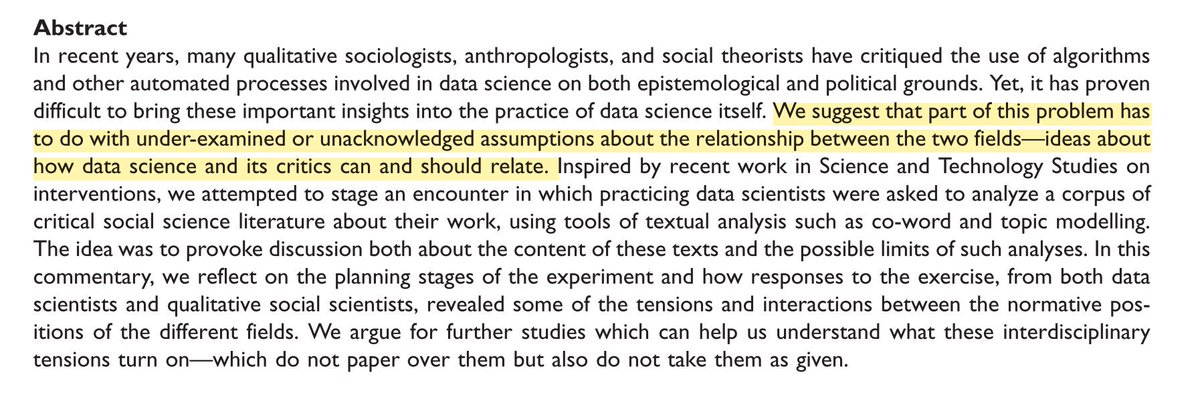
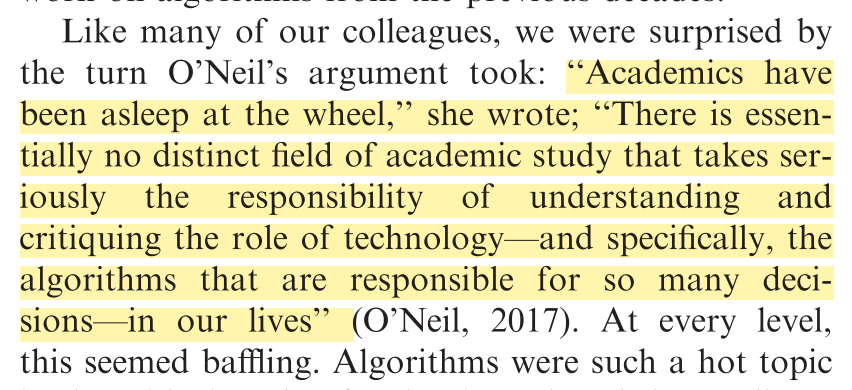
Actually, Cathy's complaint is frequently echoed in tech. See this tweet -- which also proved very controversial.
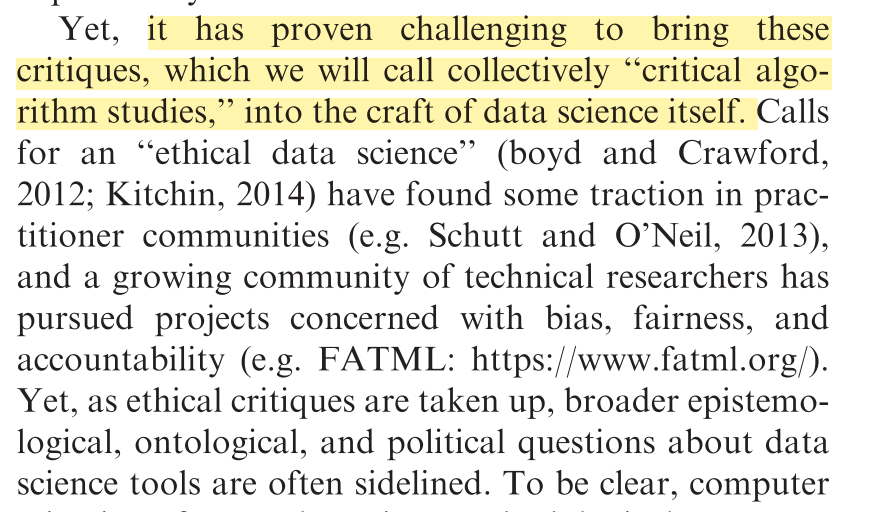
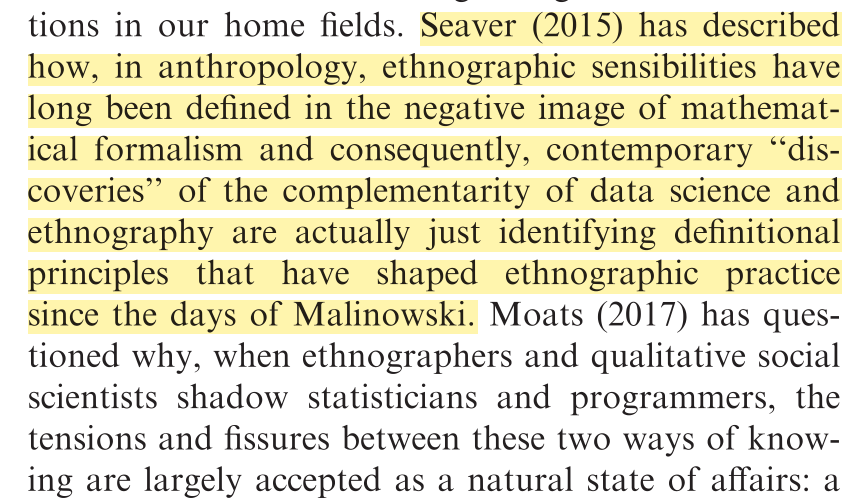
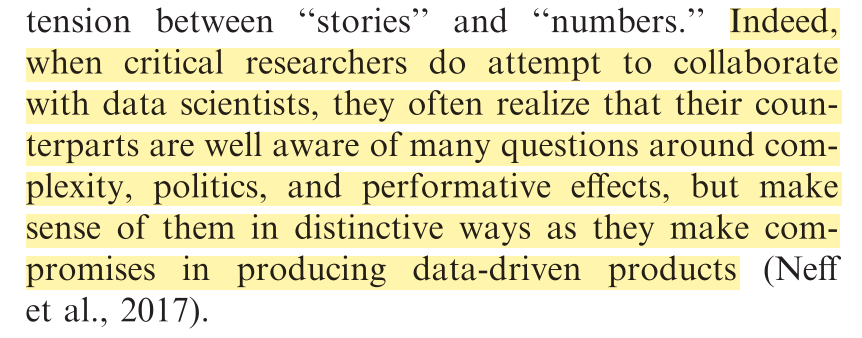

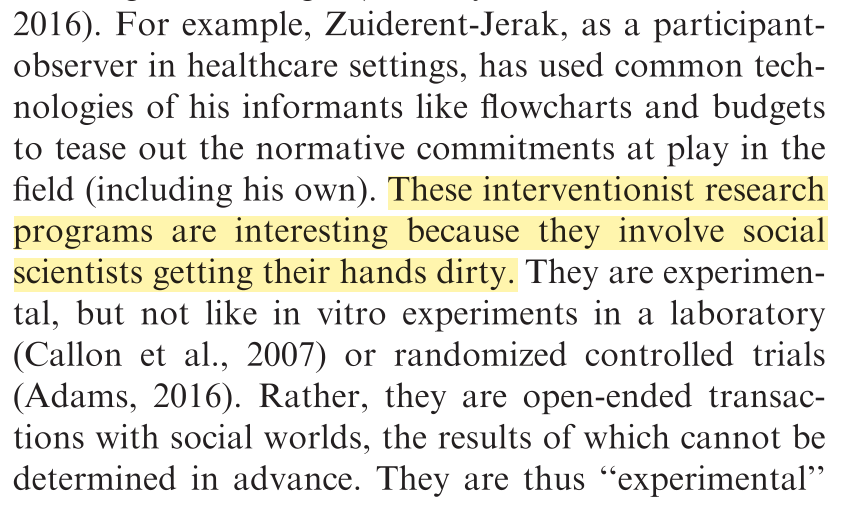

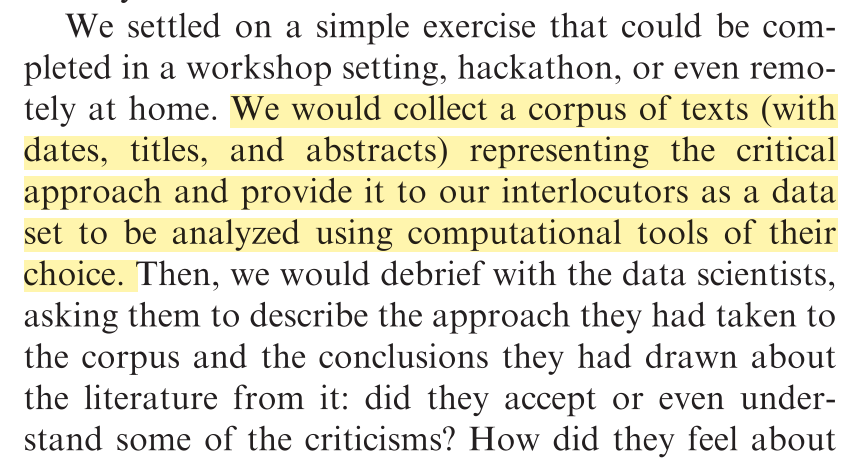
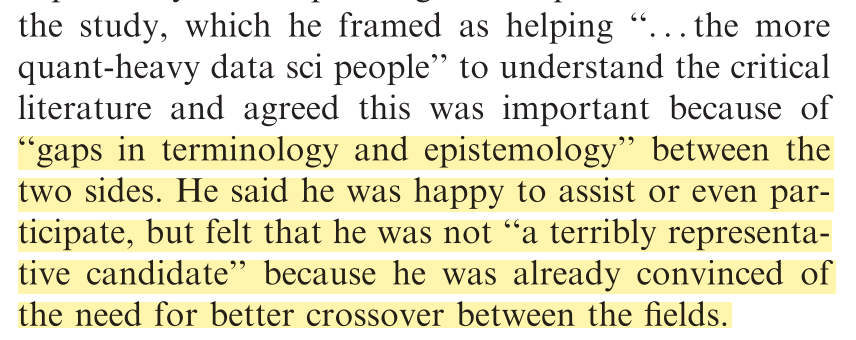
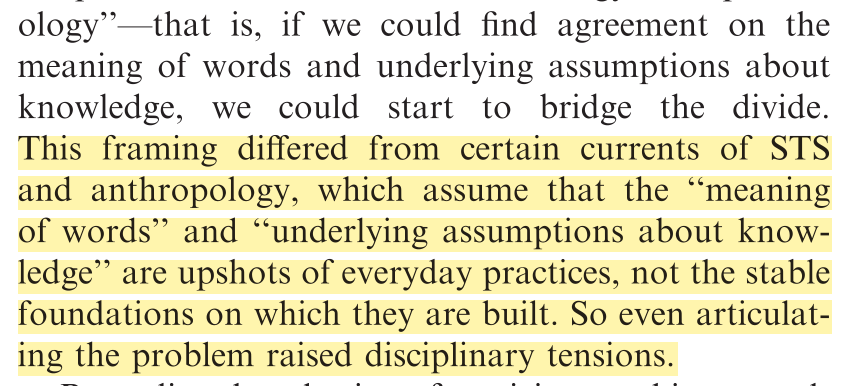
Different types of reflexivity: I think you're on to something. Reflexivity used to solve different problems, too.
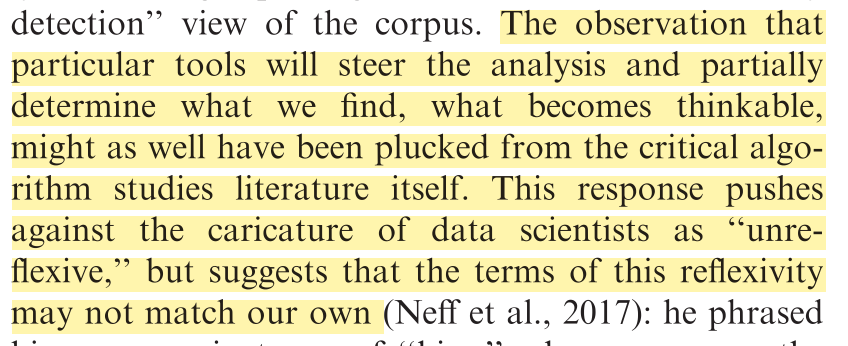
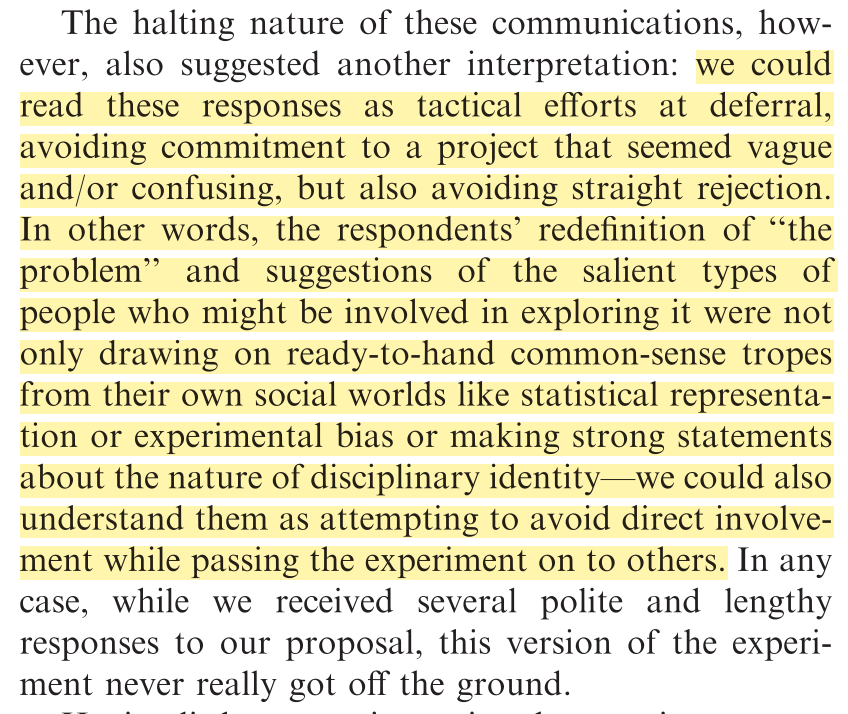
OTOH, such people do exist -- or at least, the stereotypical behaviors do appear from time to time, though perhaps not all in the same person.

Perhaps the authors can explain their thinking in choosing this approach?
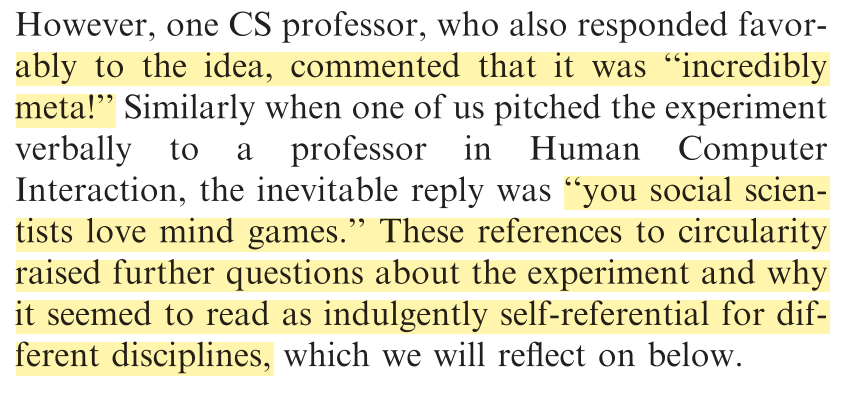
It also strikes me that ethnography of how the "gap" plays out could be very worthwhile.
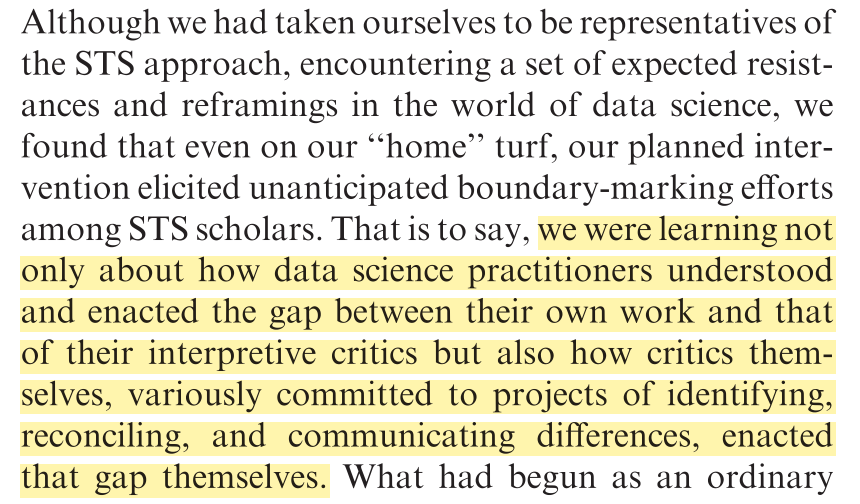

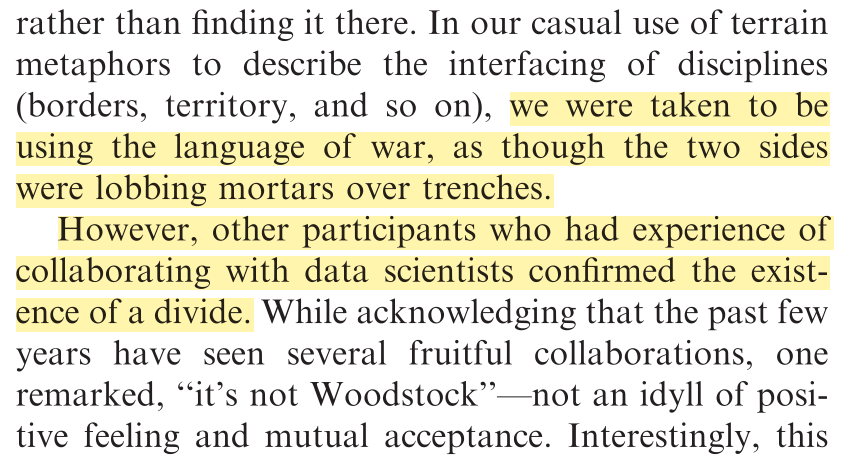
My take is that ML/NLP reveal fundamentally new empirical aspects of meaning, the humanities and social sciences have not really integrated these insights.

However, this does point back to the desire of technologists to define terms before talking, as opposed to just "letting meanings emerge." (In reality, of course, meanings DO emerge, but that doesn't free you from the need for formal definitions.)
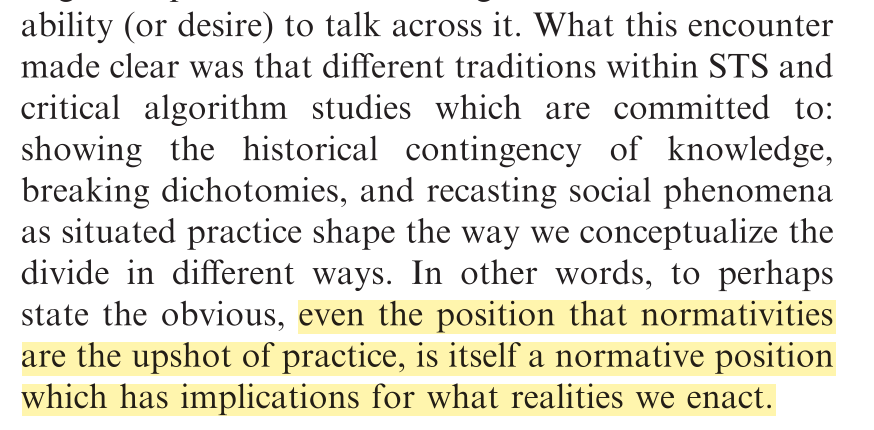
Technologists are not really interested in themselves -- the method should work no matter who uses it. They are, however, extremely interested in getting reflexive about their own tools.
Contrariwise, researcher subjectivity is core to ethnography.
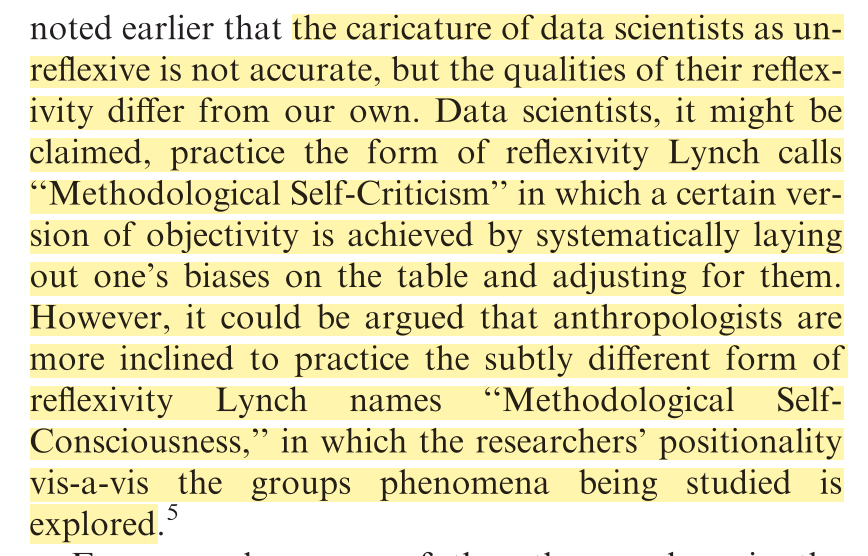
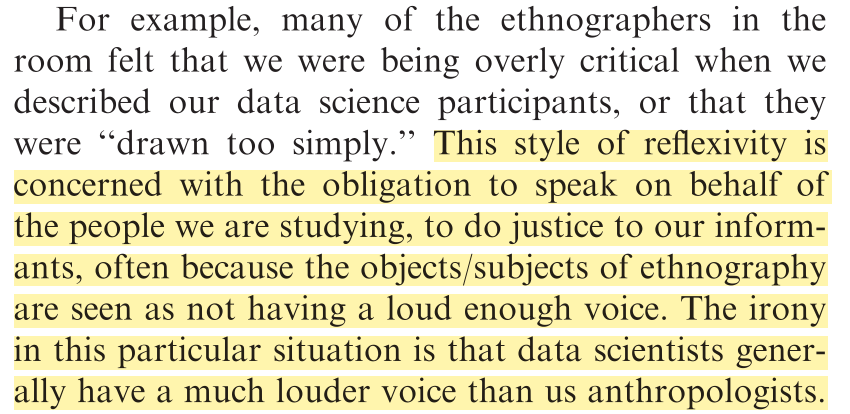
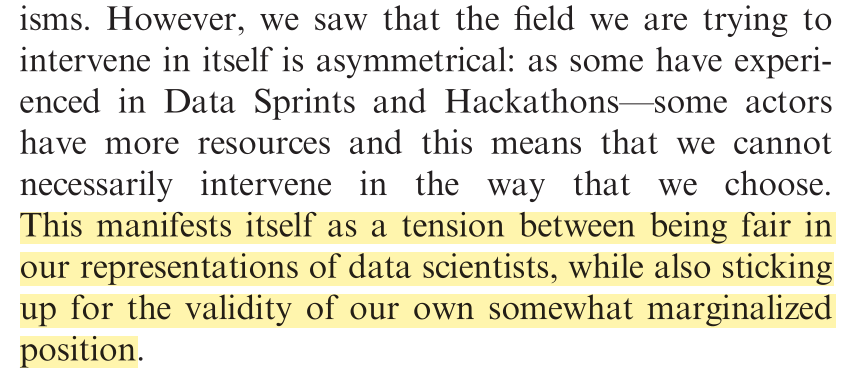
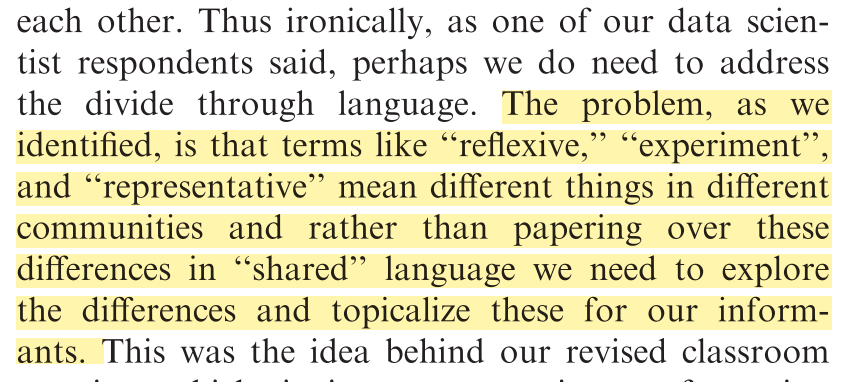
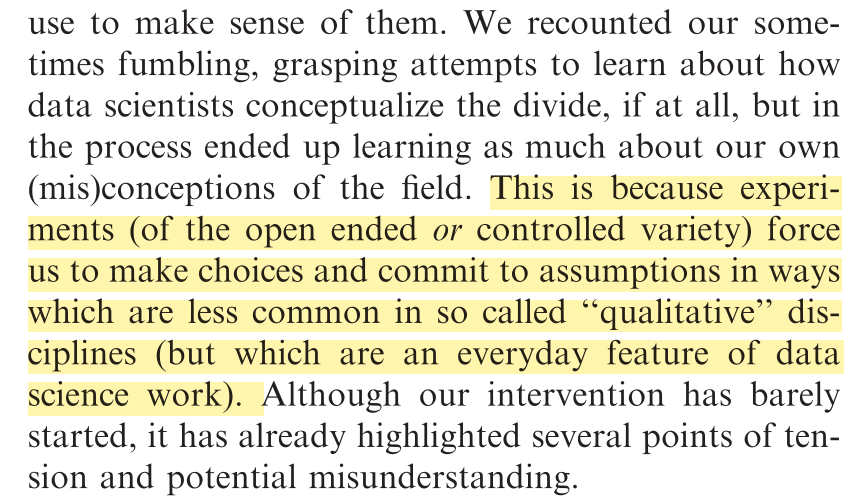
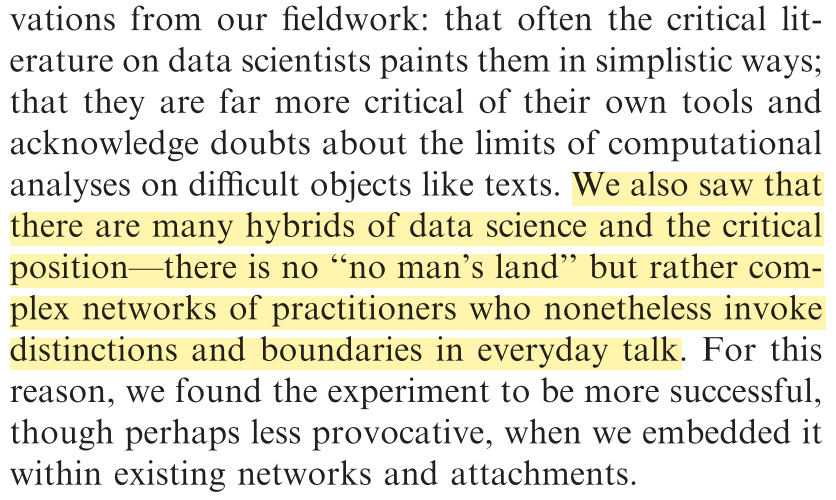
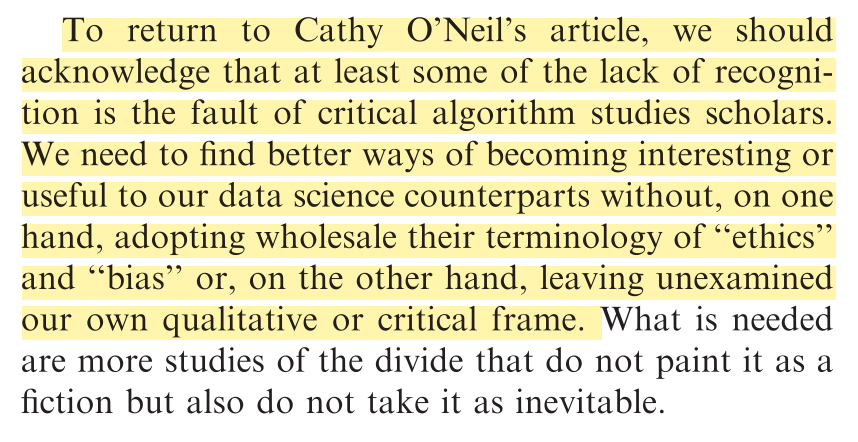
I hope you enjoyed my engagement with @davidjmoats and @npseaver's engagement with the data science community.
I too enjoy a good meta. But more importantly I think this sort of hybridization is desperately needed
/fin


